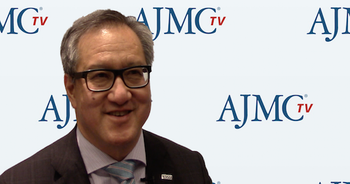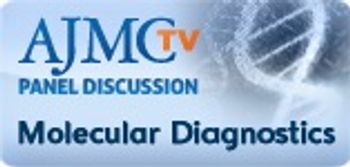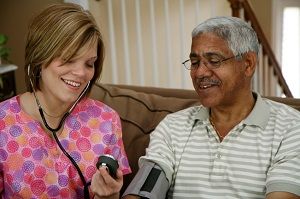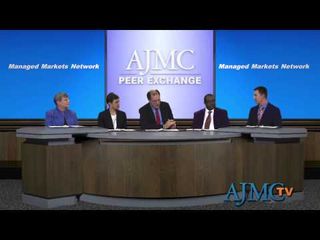
Diagnostics
Latest News

Latest Videos

More News

Better care for high-need, high-cost patients will require targeted care delivery models based on integrated data networks that include clinical, genomic, and social information. Check out our website’s new table/figure pop-up feature! Click on the name of a table or figure in the text to see it in your browser.

The Population Health Care Delivery Model presents delivery systems with a framework for developing, piloting, and implementing population health programs across the continuum of care.

The ability to create health information technology tools is happening much faster than the ability to figure out what to do with them, explained Peter Paul Yu, MD, FASCO, FACP, physician-in-chief, Hartford HealthCare Cancer Center.

The gap between patients and technology can be overcome with workforce ready to handle innovation and communicate value to patients.

Technology innovation drives expenditures. A Michigan Medicine, IBM, and AirStrip partnership demonstrates the hospital’s role in developing transformative technologies that deliver value.

The GeneSight test address an unmet need that mental health leaders have wanted for years: a way to avoid the "try until it fails" approach in selecting anti-depressants.

While the FDA could regulate diagnostic tests the way they are in Europe-through simple verification that the test is accurate-the FDA has not chosen to do that and comes closer to requiring clinical utility, explained Bruce Quinn, MD, PhD, senior director at FaegreBD Consulting.

The latest installment in the 20th anniversary commentary series in The American Journal of Managed Care explores the concept of "clinical efficacy." This healthcare delivery model asks stakeholders to make use of data and value-based contracts that reward early intervention in high-risk patients.

The diagnosis and management of patients with dementing illnesses can be challenging, but the cost of misdiagnosing dementia as Alzheimer's disease can be as high as $14,000 a year, according to a study published in Alzheimer's & Dementia.

Daniel Hayes, MD, explains the implementation of the American Society of Clinical Oncology's CancerLinQ for beta testing.

As the personalized medicine initiative takes shape, word comes that CMS will pay for key genetic tests in lung cancer. This policy shift is a sea change after a long period of frustration for test makers in seeking reimbursement.

A federal lawsuit accuses the Cleveland Clinic Health System of performing more tests and procedures on patients than necessary in order to obtain more Medicare payouts.

In 2 interviews with Physicians' Education Resource, LLC, award-winning journalist Joan Lunden and Patrick I. Borgen, MD, of Maimonides Medical Center in Brooklyn, NY, discuss breast cancer in advance of the 32nd Annual Miami Breast Cancer Conference.

Working collaboratively leads to more accurate diagnoses and may help reduce medical errors, according to a study published in JAMA.

In addition to recommendations on alternate techniques, the revised guideline, being jointly developed by CAP, IASLC, and AMP, will also include testing for emerging biomarkers in lung cancer.

In comments to the House Committee on Energy and Commerce, Health Subcommittee, ASCO strongly supported the FDA's resolution to rigorously regulate laboratory-developed tests.

Representatives from industry and the FDA share perspectives on the state of regulation for therapeutics and diagnostics at the 56th annual meeting of the American Society of Hematology, being held in San Francisco.


The evolving field of precision medicine is very much reliant on diagnostics, Howard K. Kaufman, MD, FACS, chief surgical officer and associate director for clinical science at Rutgers Cancer Institute of New Jersey, said at The American Journal of Managed Care's Patient-Centered Oncology Care meeting.


Optum, UHC's technology and services subsidiary, has bought Allere's wellness subsidiaries.

The toughest topics in cancer care will be on tap November 13-14, 2014, in Baltimore, Maryland, when AJMCLive presents Patient-Centered Oncology Care. If you've followed the discussion among pharmaceutical leaders, oncologists, and payers over access to care, you'll want to join stakeholders to discuss how to ensure patients get what they need while controlling costs.

The authors describe 5 basic requirements for planning, implementing, and proving clinical utility for diagnostic tests, drawing on recent reimbursement decisions.


For many months now, the AAFP has urged family physicians to prepare for this year's Oct. 1 deadline for implementation of the ICD-10-CM code sets for outpatient diagnostic coding.

















